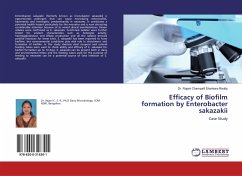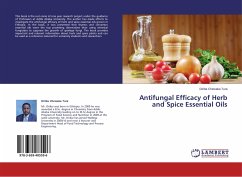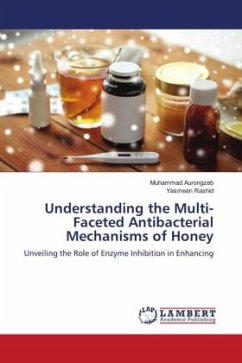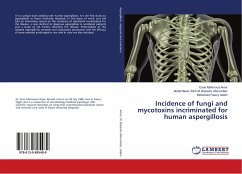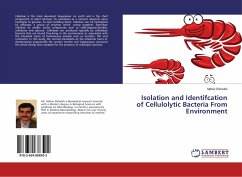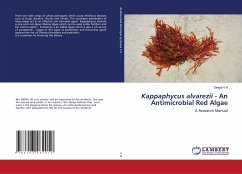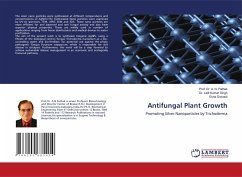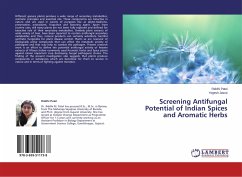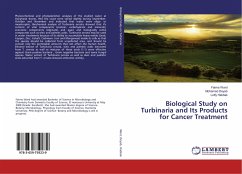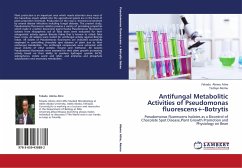
Antifungal Potentialities of Nanobiocides
Versandkostenfrei!
Versandfertig in 6-10 Tagen
53,99 €
inkl. MwSt.

PAYBACK Punkte
27 °P sammeln!
This work targeted the management of green mold disease of citrus fruit caused by Penicillium digitatum through eco-friendly approaches. Epiphytic biocontrol agents were isolated from the surfaces of orange fruit and screened for their antagonistic bioactivity against Penicillium digitatum. The isolate showed the highest antifungal activity was identified morphologically and to the molecular level as Enterobacter sp. SH-87 strain. In-vitro experiments demonstrated that Enterobacter sp. was able to produce metabolites which efficient in reducing the fungal growth in a dose-dependent manner. Add...
This work targeted the management of green mold disease of citrus fruit caused by Penicillium digitatum through eco-friendly approaches. Epiphytic biocontrol agents were isolated from the surfaces of orange fruit and screened for their antagonistic bioactivity against Penicillium digitatum. The isolate showed the highest antifungal activity was identified morphologically and to the molecular level as Enterobacter sp. SH-87 strain. In-vitro experiments demonstrated that Enterobacter sp. was able to produce metabolites which efficient in reducing the fungal growth in a dose-dependent manner. Additionally, the in-vivo findings indicated that the fermentation broth (FB) decreased disease incidences of artificially infected oranges. The broth compounds including chitosan CHS, salicylic acid SA, and cinnamic acid CA were evaluated against the green mold pathogen. Chitosan was exposed to gamma rays and the prepared CHS, CHSSA, and CHSCA nanobiocides were characterized by using DLS, Zetapotential, SEM, TEM, and FTIR. Data clarified that the synthesized biocides have nano properties. Nanobiocides were exploited for coating citrus fruit to reduce disease incidence.





